Why You Can’t Buy Lydia Davis’s New Book on Amazon
Our Strangers is more than a beguiling collection of short fiction: It represents a stand against what might be killing the book industry.
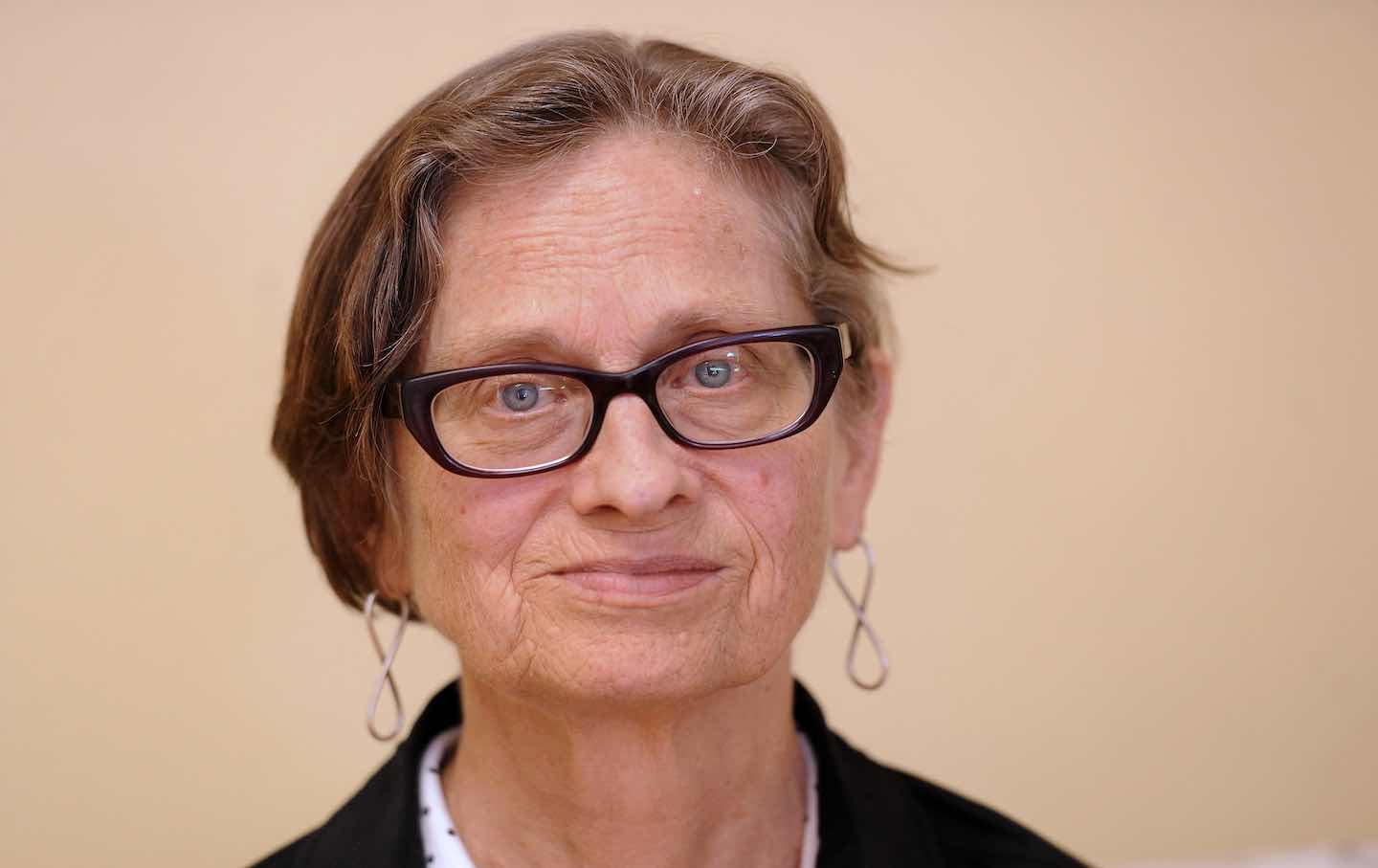
Lydia Davis, 2018.
(Photo by Pedro Martin Gonzalez Castillo / Getty Images)Lydia Davis’s stories are like Fabergé eggs: miniature and intricate and, more often than not, flawless. She’s an essayist, infrequent novelist, translator of writers including Proust and Flaubert, and, most of all, the reigning English-language master of the very short story. Her collections are both wry and bighearted, abstract and autobiographical. They are consistently fascinated with the mundane: She might write about a shopping list, a train ride, a bad but uneventful meal. Reading them means standing at the boundaries of story and essay, story and poem, story and scribbled note. What makes these short stories? you may ask yourself on leafing through one of her books. Keep reading, though, and before long, the question will become: Why didn’t I know this was how stories could be?
In her latest collection, Our Strangers, Davis does not stray from form. Its longest stories are a handful of pages; its shortest, a handful of clauses. Its ideas and preoccupations link and tangle, sometimes explicitly. Some stories comment subtly on Davis’s overall style, such as “Winter Letter,” a rambling update from a mother to her adult kids that includes the aside: “I know this isn’t too fascinating, but it’s our life.” It isn’t unusual for her stories to blur fiction and Davis’s own private reality. In “Addie and the Chili,” the narrator, reflecting on her efforts to turn a memory into a story, observes that it’s hard to do so because, “as is true of many stories in real life, not much had happened. All that happened was that certain emotions had shifted around from person to person over that hour or so.”
Some of Davis’s stories also highlight their relationship to each other, such as “More Corrections,” which takes the form of—or maybe just is—feedback from the author to a copy editor, or vice versa, about Our Strangers. There are recurring bits, like “Claims to Fame,” which run only a few sentences long and are supposed to tell the reader why a public figure is famous. “Claim to Fame #2: Karl Marx” reads, in its entirety: “Karl Marx and my father both had daughters. Both daughters grew up to become translators. Both translated Gustave Flaubert’s Madame Bovary.” Even in a snippet this small, Davis’s precision is apparent. The story telescopes around the word “both,” which goes from sitting in the middle of the first sentence, hardly necessary, to being the subject of the third. Subtly but noticeably, Davis insists on that both—which is, of course, an insistence that the claim is valid, that the link between the speaker’s father and Karl Marx is real.
Our Strangers is, thematically, all about tenuous similarities and relationships like this one. Its speakers and the people they report on are constantly stumbling into strangers who remind them of themselves, or who intrigue them beyond reason, or who they find themselves relying on. In “Sabbath Story #1: Circuit Breaker” and “Sabbath Story #2: Minyan,” religious Jews ask passersby to help them comply with ritual commandments (not flipping a switch on Shabbat; assembling a group of 10 men for prayer). In “Pardon the Intrusion,” members of what seems like a neighborhood forum give and receive all kinds of mundane assistance; in one section of the title story, which is among the collection’s longest, a woman named Gertie regularly visits a neighbor with dementia with “little jobs for him.” His “favorite” job “was to count out piles of pennies and fit them into the paper rolls provided by the bank…. Sometimes she had no more pennies for him to package. Then, at home, she would secretly undo the paper rolls, pour out the pennies, and take them back.” Such small kindnesses are the building blocks of Our Strangers and, perhaps, of Davis’s broader outlook. Certainly, she values community and connection—which is part of why Our Strangers will be the first new release by a major American writer that is designed to never be purchased on Amazon.
It’s been a long time since Davis used Amazon herself. “Long ago,” she told me in a phone interview, “in the ’90s, I was more innocent and I bought books through Amazon.” But the more she learned about the company’s labor abuses, environmental impact, and harmful effects on small businesses, the more distressed she got. She quit using Amazon and grew increasingly dedicated to shopping at local businesses. “We all have to have a stake in our community and an investment in our community,” she said, “and I don’t feel that Amazon has a stake in anything except its own profit.” Unsurprisingly, Davis has an especially keen sense of community where books and bookstores are concerned. For her, an independent bookstore is “the heart of a community, and it made me furious that bookstores were being outsold or undercut by this bully, Amazon.”
Davis isn’t the only author to warn their readers against Amazon. In 2021, Dave Eggers announced that his novel The Every would be released in hardcover at independent bookstores six weeks before any copies would be made available on Amazon, and that Amazon would only get paperbacks. His explanation: “I don’t like bullies.” After Davis heard this news, she realized that she could go even further. At the time, her second collection of nonfiction, Essays Two, was en route to stores, but she decided that her next book would not be sold on Amazon at all. She had no idea how to make that happen, but she was determined. “I’d do anything,” she told me. “I would not publish it if necessary.”
Davis didn’t have to go quite that far, but she did need to leave her longtime publishing house, Farrar, Straus and Giroux, which couldn’t get around its parent company Macmillan’s distribution agreements with Amazon. Other presses said the same: It just wasn’t possible for them to avoid the company. At that point, Davis’s agent, Denise Shannon, sought help from Andy Hunter, an experienced independent publisher and Amazon opponent. In early 2020, Hunter launched Bookshop.org, an online book-buying platform that funnels 30 percent of each sale to its affiliate bookstores. Shannon thought Hunter might have some ideas about where to take Our Strangers.
Very quickly, Hunter had a vision for releasing Davis’s stories without Amazon—or, for that matter, any publishing operation. Bookshop had never released a book itself and had no plans to do so. Still, Hunter understood how that side of the business worked, having spent time as a publisher at Soft Skull and running the small publisher Catapult before launching Bookshop. Besides, he told me, he was eager both to work with Davis and to “reward her for trying to support bookstores with the book instead of selling it on Amazon. Just the idea that that wasn’t possible, that every book had to be sold on Amazon in order to exist, was offensive to me. I wanted to prove that it could be done.”
Hunter knew of one book, Danny Caine’s pamphlet How to Resist Amazon and Why, that had been successfully released without Amazon, though it’s available on the platform now. He reached out to Caine’s publisher, Microcosm; he also spoke to Ingram Content Group, the United States’ largest book wholesaler, which uses a program called the Indie Vault to reserve a certain number of copies of popular titles for distribution exclusively to independent bookstores, thereby keeping Amazon from cornering the market for them. (If you got a copy of, say, Michelle Obama’s Becoming from your local bookstore, you may have the Indie Vault to thank.) Microcosm was glad to help Bookshop release Our Strangers, and Ingram was open to the idea of putting every single copy in the Indie Vault—and so, days after Shannon reached out to Hunter, he returned to her and said, “Let’s do it. Let’s just make it happen.”
Hunter and Davis aren’t the only people in the literary world who have surveyed the current publishing scene and decided to make something new happen. Manhattan bookstore McNally Jackson launched a small press last January in order to create beautiful new editions of undersung books; in 2018, the literary magazine A Public Space did something similar, though it now releases original titles, too. Some authors have also moved into publishing: Chelsea Hodson, for example, founded Rose Books in order to release the musician Geoff Rickly’s novel Someone Who Isn’t Me. It came out this July and has already sold out its print runs twice.
Starting a press is one thing; turning your online book-buying platform into a press—it’s called Bookshop Editions—while simultaneously working out how to circumvent Amazon is another. Hunter did not help bring this press, or Our Strangers, into the world alone. As in a Davis story (or in a heist movie, to use Hunter’s preferred comparison), he had to rely on a cast of strangers and current and former colleagues for help. Although Hunter has edited fiction in the past, he decided he was too rusty to work with Davis; instead, he reached out to the editor Pat Strachan, with whom he had worked at Catapult. Strachan was Davis’s first editor at Farrar, Straus and Giroux and was glad to work with her again; so was her initial FSG copy editor, John McGhee, now a freelancer, which meant the actual text of the collection was taken care of.
Next, Hunter needed to consider the actual book itself, getting a cover designer, production manager, and printer to work with him and Microcosm on creating a physical object that would stand out on a bookstore’s display table. He hired a freelance publicist and worked with Ingram to craft a strategy for getting data about the book to libraries and independent bookstores while keeping it away from Amazon—something that current book-data distribution systems are not set up for and that, he said diplomatically, was “very tricky.”
Popular
“swipe left below to view more authors”Swipe →For Hunter, the stakes of releasing Our Strangers feel particularly high. He wants to do right by Davis, whom he considers “one of the best writers in the world.” He also wants her example to seem viable to other authors. He was eager to make the point that, while the Bookshop team was thrilled to work on Our Strangers, he’s less committed to the future of Bookshop Editions than to this release as “something Lydia Davis is doing for independent bookstores. We are merely facilitating it.” Yet in enabling Davis to publish a book that’s not sold on Amazon, Hunter is advancing the mission that he took on when he founded Bookshop. Like Davis, he sees independent bookstores as “extremely valuable for the culture and ecosystem around books,” and books themselves as “our culture and soul.” Amazon, in contrast, treats books as “just another commodity.” If Davis, Hunter, and Bookshop Editions can create a publishing model less reliant on Amazon and other corporations—one that enables authors whose renown isn’t as great as Davis’s to get their books out of Jeff Bezos’s grip—they will open new doors in the industry.
Commodification in the book world is far older than Amazon. In Big Fiction, a forthcoming study of the effect of publishing conglomeration on American literature, Dan Sinykin describes a 1980 Senate hearing on the question of whether publishers’ merging was a violation of antitrust laws. (The Justice Department heard a case on the same question this year.) At the 1980 hearing, Maxwell Lillienstein, the general counsel of the American Booksellers Association, argued that publishers and booksellers are involved in a “unique business…that can determine the fate of civilizations. Books are not commodities to be marketed like toothpaste or soap.” Forty-three years later, Hunter and Davis are making precisely the same argument, which is at once encouraging and disheartening. What is completely and profoundly encouraging, though, is watching Davis take her belief in community from the page to the bookstore. In doing so, she’s not only defying a bully but also bringing herself closer to the people who will read and sell her book.
Disobey authoritarians, support The Nation
Over the past year you’ve read Nation writers like Elie Mystal, Kaveh Akbar, John Nichols, Joan Walsh, Bryce Covert, Dave Zirin, Jeet Heer, Michael T. Klare, Katha Pollitt, Amy Littlefield, Gregg Gonsalves, and Sasha Abramsky take on the Trump family’s corruption, set the record straight about Robert F. Kennedy Jr.’s catastrophic Make America Healthy Again movement, survey the fallout and human cost of the DOGE wrecking ball, anticipate the Supreme Court’s dangerous antidemocratic rulings, and amplify successful tactics of resistance on the streets and in Congress.
We publish these stories because when members of our communities are being abducted, household debt is climbing, and AI data centers are causing water and electricity shortages, we have a duty as journalists to do all we can to inform the public.
In 2026, our aim is to do more than ever before—but we need your support to make that happen.
Through December 31, a generous donor will match all donations up to $75,000. That means that your contribution will be doubled, dollar for dollar. If we hit the full match, we’ll be starting 2026 with $150,000 to invest in the stories that impact real people’s lives—the kinds of stories that billionaire-owned, corporate-backed outlets aren’t covering.
With your support, our team will publish major stories that the president and his allies won’t want you to read. We’ll cover the emerging military-tech industrial complex and matters of war, peace, and surveillance, as well as the affordability crisis, hunger, housing, healthcare, the environment, attacks on reproductive rights, and much more. At the same time, we’ll imagine alternatives to Trumpian rule and uplift efforts to create a better world, here and now.
While your gift has twice the impact, I’m asking you to support The Nation with a donation today. You’ll empower the journalists, editors, and fact-checkers best equipped to hold this authoritarian administration to account.
I hope you won’t miss this moment—donate to The Nation today.
Onward,
Katrina vanden Heuvel
Editor and publisher, The Nation
More from The Nation
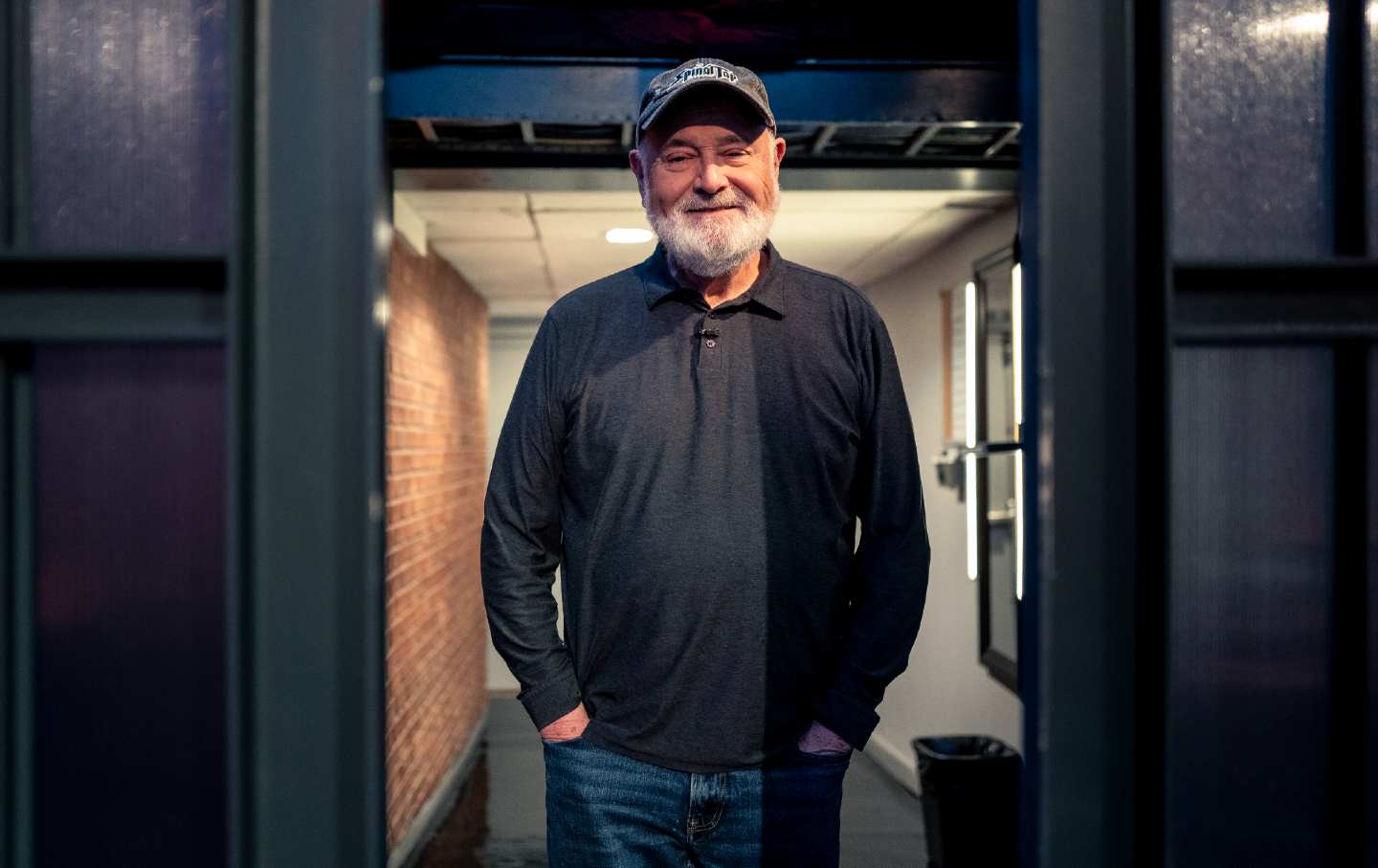
Rob Reiner’s Legacy Can't Be Sullied by Trump’s Shameful Attacks Rob Reiner’s Legacy Can't Be Sullied by Trump’s Shameful Attacks
The late actor and director leaves behind a roster of classic films—and a much safer and juster California.
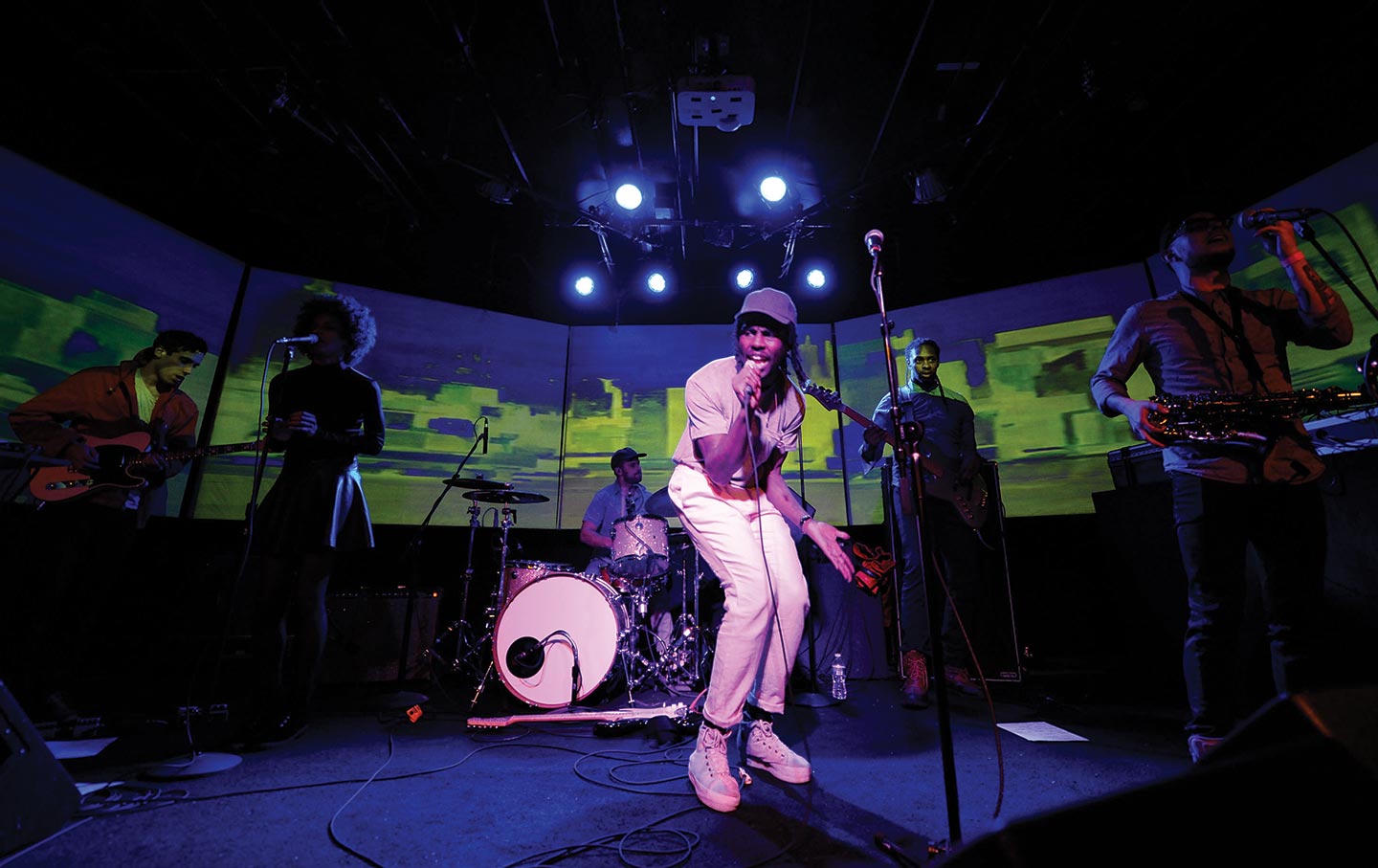
Blood Orange’s Sonic Experiments Blood Orange’s Sonic Experiments
Dev Hynes moves between grief and joy in Essex Honey, his most personal album yet.
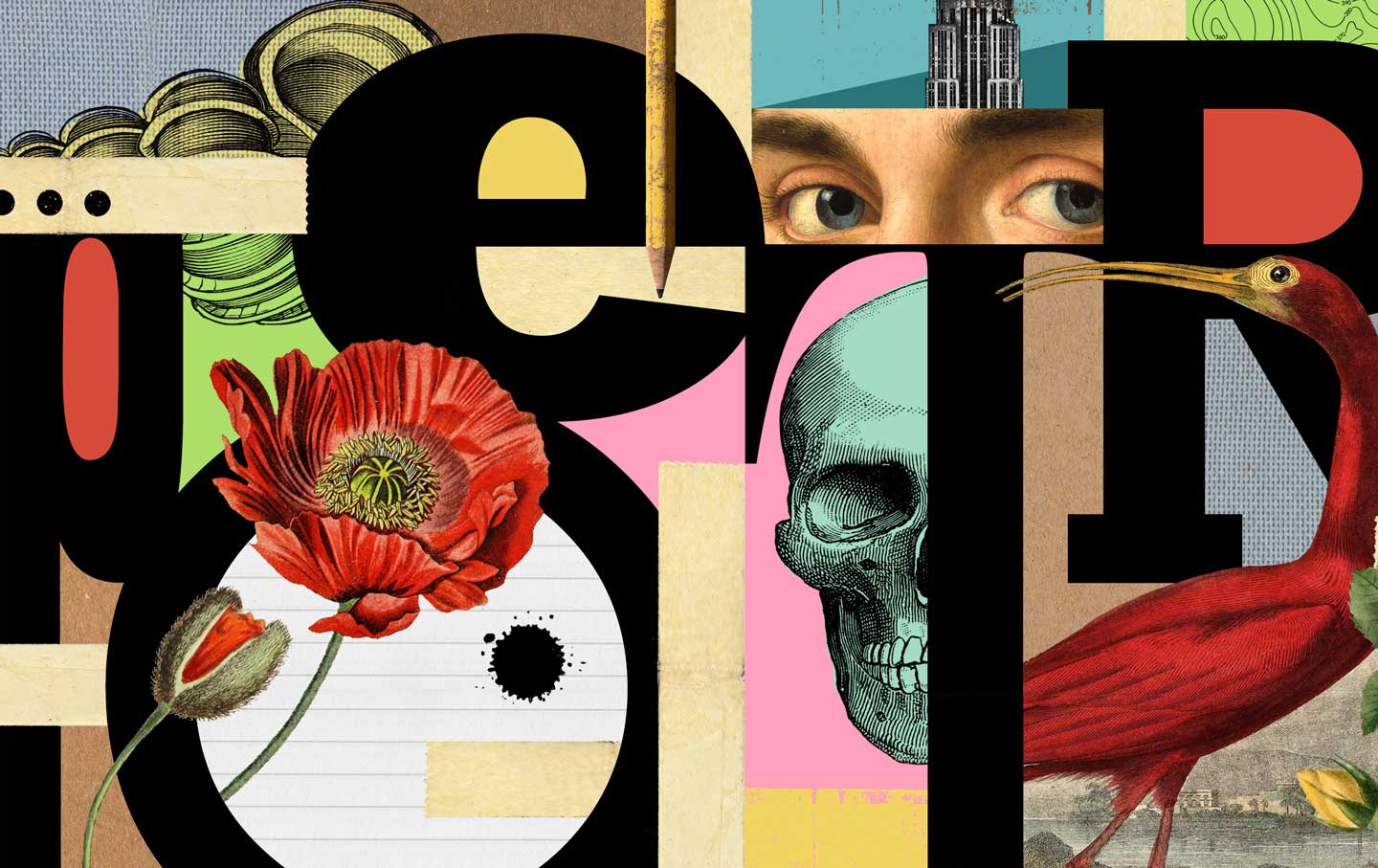
Ars Poetica with Backup from The Clark Sisters Ars Poetica with Backup from The Clark Sisters
after “Is My Living in Vain?”, 1980
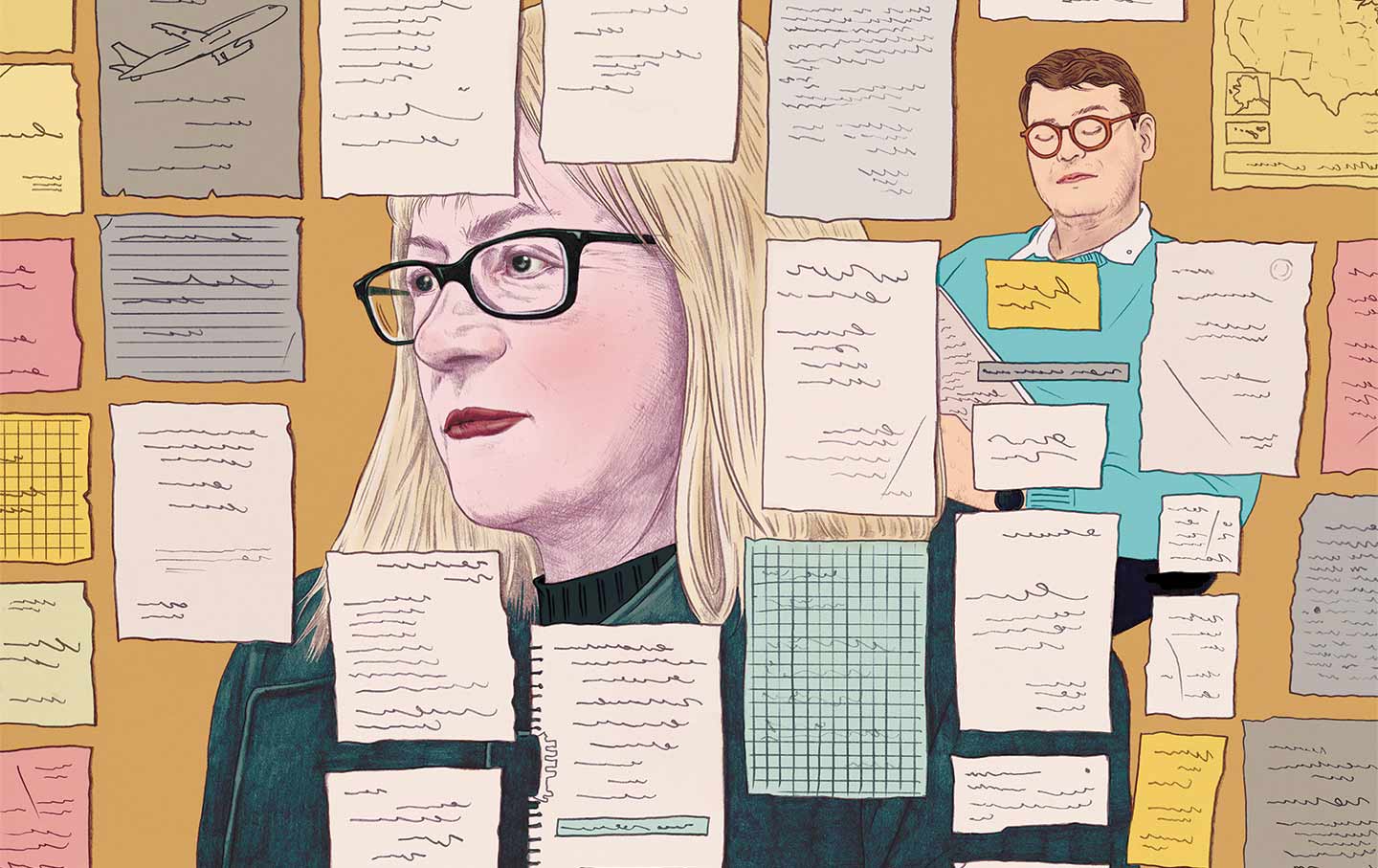
Helen DeWitt and Ilya Gridneff’s Sweeping Anti-War Novel Helen DeWitt and Ilya Gridneff’s Sweeping Anti-War Novel
Your Name Here dramatizes the tensions and possibilities of political art.


